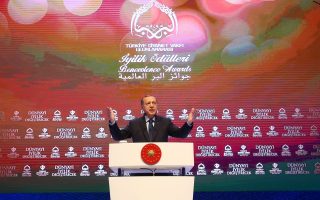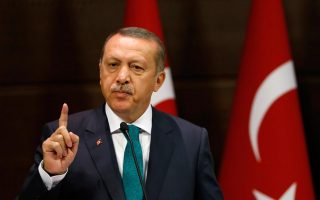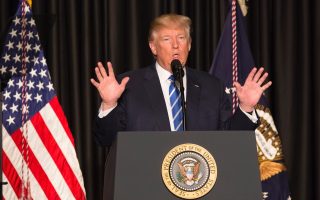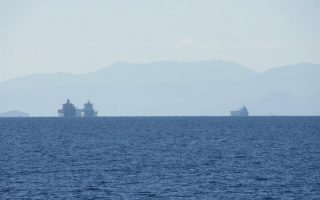Erdogan’s high-risk games
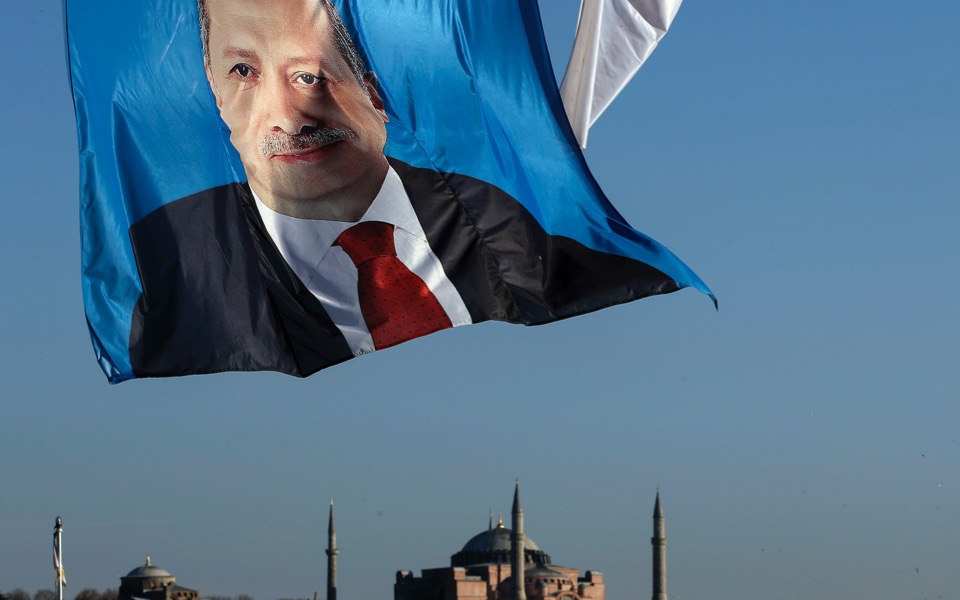
During a visit to Istanbul a few years ago, I met with a Western diplomat who at the time held a post in Turkey. After talking about Greek-Turkish relations and the Cyprus problem, our conversation turned to political and economic developments in Turkey. The country’s economy was growing, so I was surprised at the certainty with which the foreign official was warning about the looming financial uncertainty brought about the dangerous antics of an unstable leader.
That was in the days before Recep Tayyip Erdogan called Europeans “Nazis” and “fascists,” before his threats to flood the European Union with thousands of refugees, and before his warnings that the Europeans “will not walk safely in the streets.”
Sure, Erdogan had already walked off the stage after an angry exchange with Israeli President Shimon Peres during a panel on Gaza at the World Economic Forum in Davos. Also, he had voiced his support for the Muslim Brotherhood and Hamas, and appeared to cooperate behind the scenes with ISIS.
Turkey’s authoritarian president believes that he is in charge of a superpower and that he is, or should be, the leader of the Islamic world – at least of Sunni Islam.
Erdogan deems that the Turkish economy will continue to grow forever. He fails to realize that serious investors are looking for an environment with the rule of law that he is now damaging. At the same time, he does not understand, or denounces, the rules of the global financial system. He believes, for example, that credit rating agencies are playing a dirty game against Turkey and him personally.
Turkey’s economy is in decline but Erdogan remains blinded by the arrogant belief that he needs no one. He has chosen to play a high-risk game, and to ignore the consequences – and he will pay the price. You cannot insult everyone around you and simply expect to get away with it.
On March 15 German Finance Minister Wolfgang Schaeuble said that the situation in Turkey at the moment is enough to “make you cry.” At the same time, Berlin decided to freeze recently agreed measures of economic cooperation between Germany and Turkey. “Has Erdogan lost his mind?” Julia Kloeckner, vice president of Chancellor Angela Merkel’s CDU party, asked a few days later, while on March 20 German Foreign Minister Sigmar Gabriel said, “We are tolerant but we’re not stupid,” adding that Erdogan had gone too far with the Nazi comments.
On March 15 Bild, the tabloid-style newspaper, summed up German sentiment on its front page featuring a picture of Erdogan and the title “You are not a democrat! You are hurting your country! You are not welcome here!”
In the wake of recent political developments in the Netherlands, more European politicians – not necessarily on the far-right – are expected to imitate Dutch Prime Minister Mark Rutte’s hardline stance on Erdogan, which, analysts say, boosted his election performance.
Most Turkey experts tend to focus on the geopolitical developments, which are of course important, while underestimating the economic dimension.
Its zero-problems-with-neighbors policy, launched by former foreign minister Ahmet Davutoglu, has turned into zero-friends. However, no economy can survive such an unhealthy environment for very long.
Unless the Turkish president changes his behavior, and there is no sign that he intends to do so, the future of the Turkish economy looks pretty grim.

